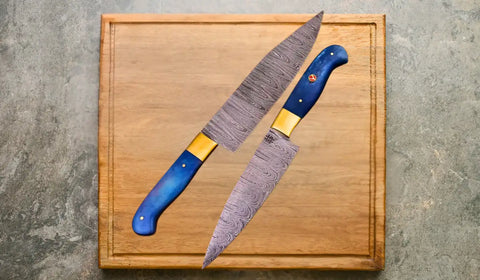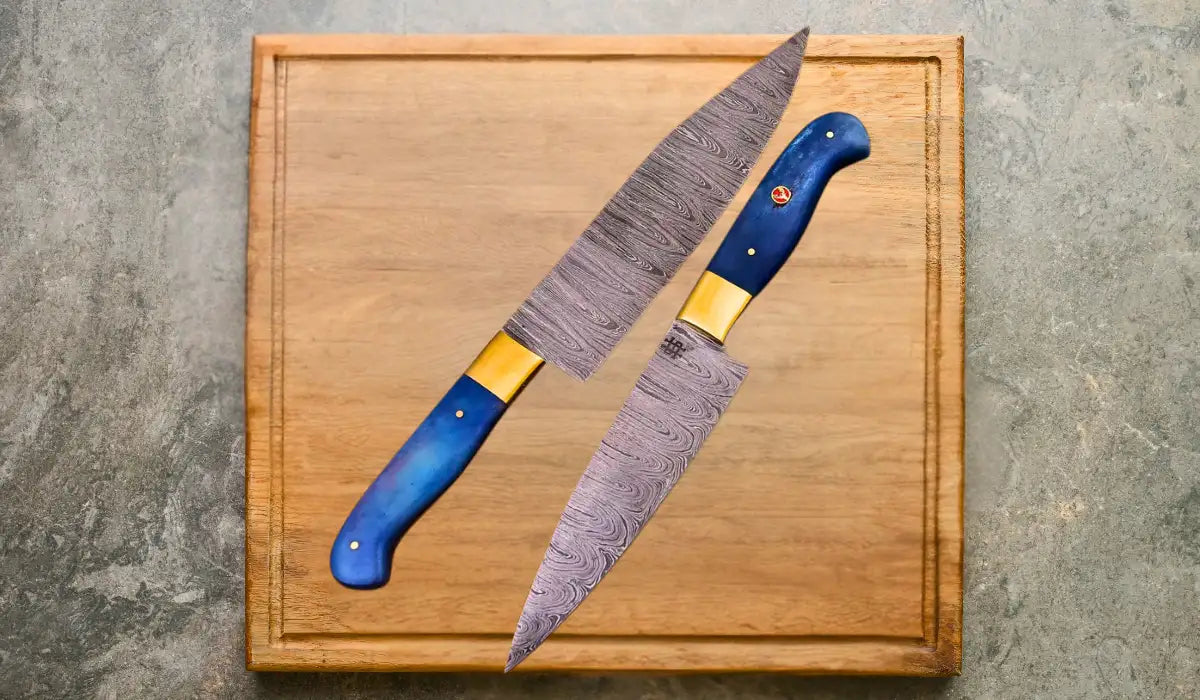The Importance of Quality Kitchen Knives in Your Culinary Journey
Quality kitchen knives are indispensable tools for any culinary enthusiast. Investing in good knives not only enhances your cooking experience but also elevates the quality of your food preparation. Whether you're a novice cook or an experienced chef, the right knives can make a significant difference, ensuring efficiency, safety, and precision in the kitchen.
The Value of Quality Kitchen Knives
Transforming Cooking Efforts
High-quality kitchen knives can transform the way you approach food preparation. They offer enhanced performance that can elevate even the simplest tasks, making chopping, slicing, and dicing quick and enjoyable. Unlike cheaper alternatives that often require significant effort, a good knife glides effortlessly through ingredients, allowing for clean, precise cuts. Moreover, quality knives maintain their sharpness longer, requiring less frequent sharpening which saves you time and effort in the long run.
Importance of Efficiency
When you invest in quality kitchen knives, you invest in your cooking efficiency. With the ability to perform multiple functions—from slicing tomatoes to finely dicing onions—a good chef's knife is essential in any kitchen. An efficient knife helps streamline your food preparation process, giving you more time to focus on the art of cooking itself.
Safety Considerations with Kitchen Knives
An Essential for Injury Prevention
Knife safety should never be overlooked, and this is where high-quality knives shine. A dull knife is often more dangerous than a sharp one, as it requires more force to cut through food, increasing the likelihood of slips and accidents. High-quality kitchen knives are designed with balanced handles that reduce strain and improve control, minimizing the risk of injuries.
Comfort and Grip Balance
Another safety aspect revolves around the handle design. Quality knives usually have ergonomic handles that fit comfortably in your hand, enhancing grip security. This means less chance of the knife slipping out of your hand, which is crucial during complex cutting techniques. A well-designed handle provides comfort even during extended use, preventing fatigue and ensuring a safer cooking experience.
Types of Quality Kitchen Knives
Essential Knives for Every Kitchen
There are several types of kitchen knives you should consider, each designed for specific tasks. A versatile chef's knife, typically 8 to 10 inches in length, is a must-have for chopping, slicing, and dicing. Paring knives are perfect for intricate tasks like peeling and trimming, while bread knives with serrated edges excel at slicing crusty loaves without damaging the soft interior. Investing in a well-rounded knife set ensures you have the right tool for every culinary task.
Specialized Knives for Enhanced Cooking Skills
For those serious about cooking, specialized knives can further enhance your culinary experience. For example, a fillet knife is essential for preparing fish, while a vegetable cleaver is ideal for cutting leafy greens. Each knife brings out different techniques and methods, allowing you to experiment and refine your cooking skills. Understanding the functionality of each knife can drastically improve the quality of your dishes.
Caring for Your Quality Kitchen Knives
Maintenance for Long-lasting Performance
To maximize the lifespan of your kitchen knives, proper care and maintenance are essential. This includes regular handwashing with mild dish soap and avoiding the dishwasher, which can damage the blade and handle. It's also important to store knives safely—whether in a knife block, on a magnetic strip, or within sheathes— to prevent dulling and accidental cuts.
Sharpening Techniques
Regular sharpening is crucial to maintaining a sharp edge. Using a whetstone or honing steel can help keep your knives in peak condition. Knowing how to sharpen your knives not only extends their life but also greatly improves performance. Invest time to learn proper sharpening techniques, and your kitchen knives will reward you with exceptional cutting experiences.
Conclusion
Investing in quality kitchen knives is a game-changer for anyone who enjoys cooking. The efficiency, safety, and precision brought about by these tools elevate your culinary experiences, making you a better chef. When you choose quality over quantity, you arm yourself with instruments that enhance your cooking techniques, ultimately leading to more enjoyable and successful meals. Remember that shopping for quality knives is not just about buying tools; it’s about investing in your culinary journey.
FAQs About Kitchen Knives
Why is it essential to invest in good kitchen knives?
Investing in good knives leads to improved efficiency, enhanced safety, and ultimately a more enjoyable cooking experience.
What types of knives should every kitchen have?
At a minimum, a kitchen should have a chef's knife, a paring knife, and a bread knife for versatility in food preparation tasks.
How should I store my kitchen knives?
Knives should be stored safely in a knife block, on a magnetic strip, or in sheaths to protect the blade and prevent accidents.
Can I put my kitchen knives in the dishwasher?
No, it’s best to handwash kitchen knives with mild dish soap to prevent damage to the blade and handle.
How often do I need to sharpen my kitchen knives?
Sharpening frequency depends on usage, but regular maintenance every few months is recommended to keep the edge sharp.
Explore the Luxury Blue-Handmade Forged Damascus Steel Chef's Knife Set


